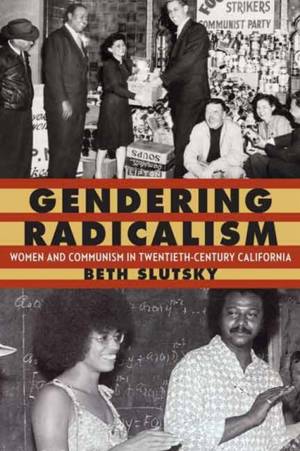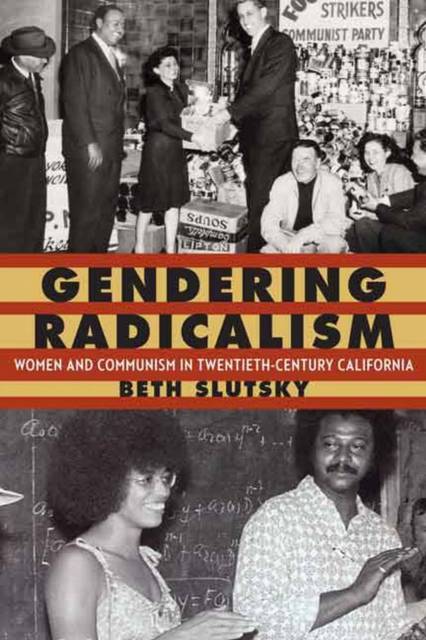
- Afhalen na 1 uur in een winkel met voorraad
- Gratis thuislevering in België vanaf € 30
- Ruim aanbod met 7 miljoen producten
- Afhalen na 1 uur in een winkel met voorraad
- Gratis thuislevering in België vanaf € 30
- Ruim aanbod met 7 miljoen producten
Zoeken
€ 68,95
+ 137 punten
Omschrijving
In 1919 Charlotte Anita Whitney, a wealthy white woman, received one of the first Communist Labor Party membership cards for the charter group of the northern California Communist Labor Party. Less than a decade later in Berkeley, California, a Jewish woman named Dorothy Ray Healey became a card-carrying member of the Young Communist League. Nearly forty years later, in 1966, Kendra Claire Harris Alexander, a mixed-race woman, enlisted with the Los Angeles branch of the Communist Party, determined to promote class equality.
In Gendering Radicalism, Beth Slutsky examines how American leftist radicalism was experienced through the lives of these three women who led the California branches of the Communist Party from its founding in 1919 to its near dissolution in 1992. Separately, each woman represents a generation of the membership and activism of the party. Collectively, Slutsky argues, their individual histories tell the story of one of the most infamous organizations this country has ever known and in a broader sense represent the story of all women who have devoted their lives to radicalism in America. Slutsky considers how gender politics, California's political climate, coalitions with other activist groups and local communities, and generational dynamics created a grassroots Communist movement distinct from the Communist parties in the Soviet Union and Europe. An ambitious comparative study, Gendering Radicalism demonstrates the continuity and changes of the party both within and among three generations of its female leaders' lives.
In Gendering Radicalism, Beth Slutsky examines how American leftist radicalism was experienced through the lives of these three women who led the California branches of the Communist Party from its founding in 1919 to its near dissolution in 1992. Separately, each woman represents a generation of the membership and activism of the party. Collectively, Slutsky argues, their individual histories tell the story of one of the most infamous organizations this country has ever known and in a broader sense represent the story of all women who have devoted their lives to radicalism in America. Slutsky considers how gender politics, California's political climate, coalitions with other activist groups and local communities, and generational dynamics created a grassroots Communist movement distinct from the Communist parties in the Soviet Union and Europe. An ambitious comparative study, Gendering Radicalism demonstrates the continuity and changes of the party both within and among three generations of its female leaders' lives.
Specificaties
Betrokkenen
- Auteur(s):
- Uitgeverij:
Inhoud
- Aantal bladzijden:
- 286
- Taal:
- Engels
- Reeks:
Eigenschappen
- Productcode (EAN):
- 9780803254756
- Verschijningsdatum:
- 1/08/2015
- Uitvoering:
- Hardcover
- Formaat:
- Genaaid
- Afmetingen:
- 152 mm x 229 mm
- Gewicht:
- 576 g

Alleen bij Standaard Boekhandel
+ 137 punten op je klantenkaart van Standaard Boekhandel
Beoordelingen
We publiceren alleen reviews die voldoen aan de voorwaarden voor reviews. Bekijk onze voorwaarden voor reviews.







